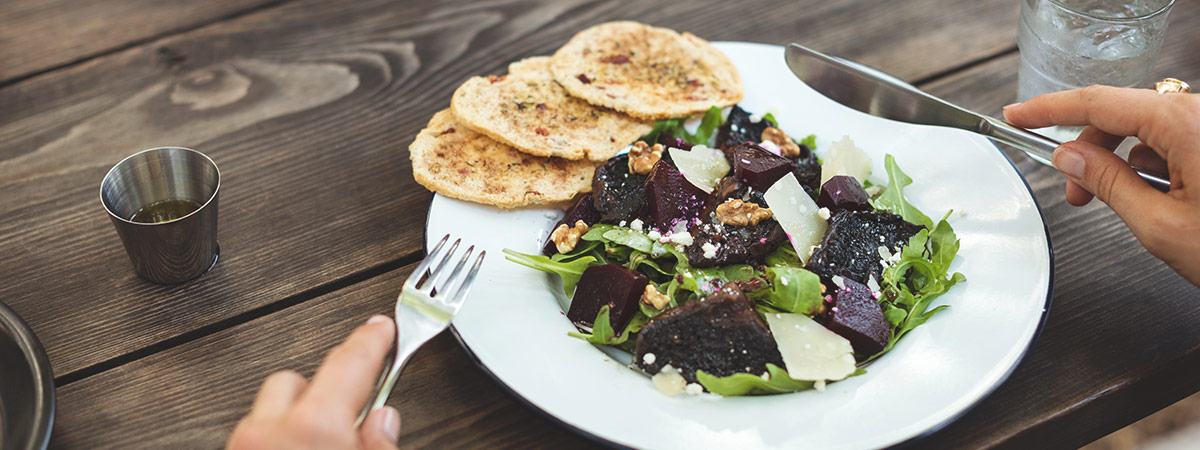
Could future food businesses manage serving solely Vegan (or at least Vegetarian) dishes? Well, if one prominent American plant-based chef is to be believed, we could all be facing a plant-based future from our favourite eateries.
Whilst many are fans of meat if you have ever had the inclination to try and decrease your meat consumption and try a more plant-based diet, the health, cost and environmental benefits are abundantly clear.
But inflammatory article titles aside, the fruits of many chefs labours are actually starting to come to fruition.
Environmentally, it makes sense for our growing population to move away from our reliance on intensive animal farming for our main source of sustenance.
But, for most people, a completely plant-based diet is either an uncomfortable thought, undesirable or unattainable.
There is a growing number of people that are forgoing the meat in favour of purely veggie intake, but what does it take to be a Vegan?
If you didn’t already know, a Vegan forgoes all animal products altogether, which as an exercise in altruism towards animals is a noble one, but over the past few years has become a more palatable decision.
Much like coeliacs and those with strict dietary requirements due to health complaints, Vegans are now seeing a growing number of options available in the retail and foodservice sectors.
This is proving profitable for a number of chains, independents and pop-ups that can cater for the tastes and dietary restrictions of a wider range of clientele.
But, it does pose problems for many kitchens, as preparation methods and recipes need to be tweaked or scrapped to be truly Vegan.
That means no ‘traditional’ core ingredients such as cheese, milk and eggs. Instead, plant-based alternatives need to be utilised to replicate the taste, flavour and texture of these animal byproducts.
Most beers and wines are Vegan-safe, but that isn’t the case for every single option – it’s definitely important to check that this is the case for what you plan on offering!
What does a vegan diet consist of?
- Beans and pulses
- Grains, rice, seeds
- Nuts
- Fruit and vegetables
- Substitute milk – soy, rice, oat, the list goes on!
So, with all this in mind, the comments from American chef Matthew Kenny stating that: ‘the future of food is Vegan’ whilst surprising, might not be the pipedream many are thinking it is.
Firstly, the margins on vegetarian and Vegan food can be massive.
If you choose to play it safe and serve only standard, everyday vegetables – no outlandish ingredients – the cost drops even further.
With clever cooking, preparation and real seasoning, a chef can create unbelievable dishes that don’t rely on meat for texture or flavour.
Many curry dishes can be made completely Vegan-friendly without forgoing the exceptional flavours and spices you associated with the Asian food.
You really don’t need to lose the flavour by offering a range of foods for your diners, just being clever can add yet another clientele you hadn’t even anticipated.
What have you got to lose?
